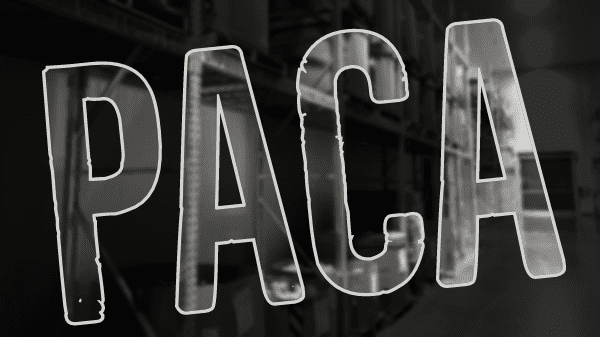Welcome to Blue Book!
Are you ready to join the thousands of companies who rely on Blue Book to drive smarter decisions? View our plans and get started today!
Still have questions? We’d love to show you what Blue Book can do for you. Drop us a line– we’ve been waiting for you.
The Problem: Retailer cancels order with truck en route.
The Key Point: The fact that the product was already on the road does not change the fundamental sales agreement between the parties.
The Solution: Assess damages equal to losses following a breach of the sales agreement.
QUESTION
I am a distributor on the East Coast. Recently I got a call from a shipper out of Florida begging me to buy a load of watermelon that was already en route (he explained a retailer had cancelled the order after it had shipped). He offered the load at a good price, so I said I’d take them and resold the watermelon to a customer in New Jersey. Two days later, I got a call from my customer asking where the melons are. When I’m finally able to get a hold of the shipper, he explains the trucker didn’t want to go to New Jersey, so he sold them to someone else. What are my options here? My customer wants to make a cover purchase, but the shipper is saying he won’t accept any claim because my customer was not the original consignee anyway.
ANSWER
Although it’s a little unusual that this product was already on the road at the time the sales agreement was entered into, this doesn’t change the fact that you purchased a load of watermelons to be delivered to your customer’s location. Based on the facts you describe, the shipper’s failure to deliver the product as agreed is a clear breach of the sales agreement.
In our view, because the load was supposed to be delivered three days ago, it is too late for your customer to make a cover purchase. The remedy available to your customer is to claim damages against you equal to the difference between the average destination market value of watermelon on the date the product was supposed to arrive (refer to the USDA Market News Service’s report for New York) and the delivered price it would have paid you for the product, had the product been delivered.
As between you and the shipper, your damages would equal the difference between the destination market average (that your customer claimed against you) and the price you would have paid the shipper had the watermelon been delivered per the sales agreement. In theory at least, damages in these amounts make both you and your customer whole, with the shipper taking responsibility for the losses.
The Problem: One of two lots of peppers fails to make good arrival.
The Key Point: Each lot must separately meet contract specifications.
The Solution: Do not rely on a good lot of produce to save a bad one.
QUESTION
We are a shipper based in Florida. Recently, we sold two pallets of bell peppers—one red, one yellow—to a wholesaler-distributor in Georgia who split up the order, shipping the yellows to a customer in Virginia, and calling for a U.S. Department of Agriculture (USDA) inspection of the reds that remained in its warehouse. The inspection certificate shows the red peppers failed to make good delivery, but I am refusing any adjustment because these peppers were sold as a single order and therefore should have been inspected together—which would have significantly reduced the percentage of defects on the inspection certificate.




